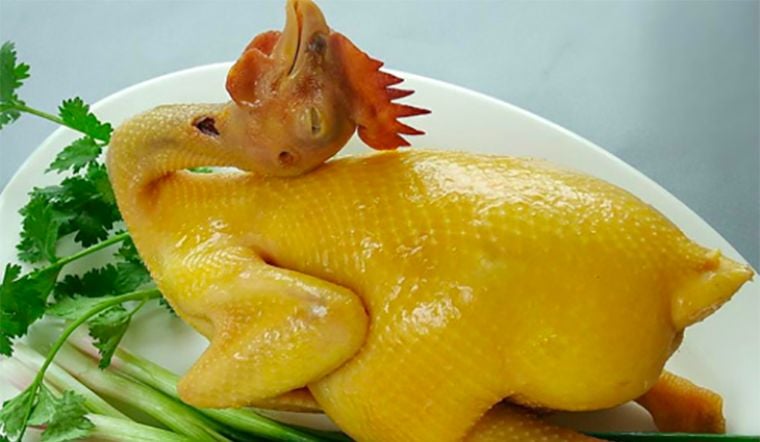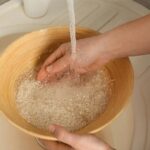Boiled chicken is a familiar dish to the Vietnamese. It often appears in family meals, especially on death anniversaries, holidays, and banquets. Boiled chicken may seem simple, but to boil a perfectly golden chicken with crispy skin, you might want to try these correct boiling techniques. However, many people still wonder if they should boil the chicken in hot or cold water. To find out the correct way of boiling chicken, read on!
Mistakes That Ruin the Taste of Boiled Chicken
Overboiling the Chicken
Many households boil chicken for an extended period, sometimes even up to half an hour or more, to ensure that the meat is not raw or red inside. This can easily make the chicken flesh mushy and bland. The correct way is to boil the chicken in warm water, simmering it just enough to cook the meat through without overdoing it. Once the water starts to boil, reduce the heat and let it simmer gently for about 5 minutes, then flip the chicken over to ensure even cooking. Remember to skim off any scum or impurities that float to the surface, then cover the pot and let it cook for a few more minutes before turning off the heat. Let the chicken rest in the hot water for an additional 5-10 minutes to ensure it’s cooked just right.

Boiling Chicken Over High Heat
Whether you’re boiling free-range or industrial chicken, once the water reaches a rolling boil, reduce the heat to low to ensure even cooking throughout the bird. High heat can cause the outside to cook faster than the inside, resulting in uneven doneness. It can also tear the skin, making the chicken less aesthetically pleasing.
Not Adding Salt While Boiling
Adding a pinch of salt towards the end of the cooking process can enhance the flavor of the chicken. However, if you want the seasoning to really penetrate the meat, it’s best to add a pinch of salt to the boiling water right from the start. This will make the chicken more flavorful and aromatic, especially if you’re planning to grill it. A little salt rubbed on the skin before grilling can make a world of difference in terms of taste and texture.
Not Seasoning the Chicken During Boiling
One of the most common mistakes that can make boiled chicken bland is not adding any seasoning during the cooking process. While salt and pepper are the most basic seasonings, they are not the only options. Try adding a crushed clove of garlic and a small piece of ginger to the boiling water to infuse the chicken with a subtle, aromatic flavor. If you’re grilling or roasting the chicken, you can rub it with a mixture of butter and lemon juice for a unique and mouthwatering taste experience.

Boiling Chicken in Cold Water
Starting with cold water to boil chicken is a common mistake that can affect the taste and texture of the meat. When chicken is boiled in cold water for an extended period, its natural sweetness and fat tend to dissipate, resulting in a blander taste. On the other hand, using water that’s already boiling can cause the skin to crack while leaving the inside undercooked. The ideal approach is to use warm water, which should be hot enough to start producing steam (around 50-60 degrees Celsius), and then add the chicken. This technique helps tighten the skin, enhancing the aroma and taste of the chicken.
Stir-fried Cucumber Flowers with Termite Mushrooms: A Refreshing, Nutritious Family Meal
Stir-fried cucumber flowers and termite mushrooms is a rustic dish, a harmonious blend of the sweet and refreshing taste of cucumber flowers and the savory flavor of termite mushrooms. This dish is not only delicious but also packed with nutrients, making it an excellent choice for a hearty family meal.



































